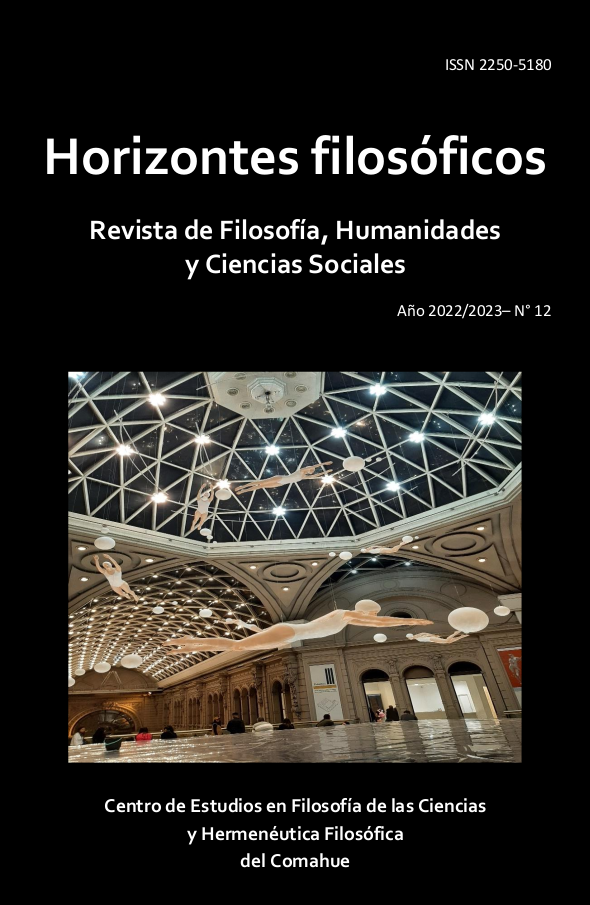La metáfora y la constitución de mundos. Significaciones y sentidos
Keywords:
Metaphor, Interpretation, Meanings, ReferencesAbstract
Is metaphor the use of a form to rediscover the world? From Paul Ricoeur's point of view, it is possible to think of it as an event and a tension, as irruption and novelty. Ricoeur's proposal characterizes true metaphors as untranslatable, with the exception of metaphors of substitution that would be the object of a translation aiming at the restoration of their literal meaning. Tension metaphors are not translatable because they create their own meaning - Ricoeur will express - with an infinite paraphrase, without the innovative production of meaning being exhausted. For Ricoeur, neither is it an ornament of discourse. The metaphor does not only fulfill an emotive value, but it offers a novelty, it brings information, "it tells us something new about reality". The question of metaphor is the staging of a tension that is debated as the primal origin of concepts, questioning the representations of the world and its "clear and distinct" capture through literal language, or as a mere rhetorical instrument to say in different ways that which is already clarified through a rather univocal language or anchored in propositional language, that is, as a didactic expression to exemplify what is already known. The purpose of this paper is none other than to trace - in the form of a detailed and schematic commentary - some of Paul Ricoeur's proposals on the notion of metaphor
Downloads
References
Ricoeur, P. (2006) Teoría de la Interpretación. Discurso y excedente de sentido. México-Buenos Aires-Madrid: Siglo XXI.
Ricoeur, P. (2008) Hermenéutica y Acción. De la Hermenéutica del Texto a la Hermenéutica de la Acción. Buenos Aires: Prometeo Libros.
Downloads
Published
How to Cite
Issue
Section
License
Copyright (c) 2023 Horizontes Filosóficos : Revista de Filosofía, Humanidades y Ciencias SocialesAtribución-NoComercial-SinDerivadas 2.5 Argentina (CC BY-NC-ND 2.5 AR)
Usted es libre de:
Compartir — copiar y redistribuir el material en cualquier medio o formato
La licenciante no puede revocar estas libertades en tanto usted siga los términos de la licencia





